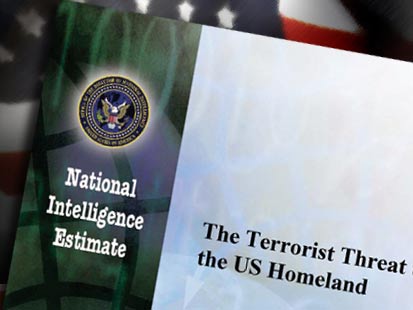
From Ellen Nakashima, Washington Post: A new intelligence assessment has concluded that the United States is the target of a massive, sustained cyber-espionage campaign that is threatening the country’s economic competitiveness, according to individuals familiar with the report.
The National Intelligence Estimate identifies China as the country most aggressively seeking to penetrate the computer systems of American businesses and institutions to gain access to data that could be used for economic gain.
The report, which represents the consensus view of the U.S. intelligence community, describes a wide range of sectors that have been the focus of hacking over the past five years, including energy, finance, information technology, aerospace and automotives, according to the individuals familiar with the report, who spoke on the condition of anonymity about the classified document. The assessment does not quantify the financial impact of the espionage, but outside experts have estimated it in the tens of billions of dollars.
Cyber-espionage, which was once viewed as a concern mainly by U.S. intelligence and the military, is increasingly seen as a direct threat to the nation’s economic interests.
In a sign of such concerns, the Obama administration is seeking ways to counter the online theft of trade secrets, according to officials. Analysts have said that the administration’s options include formal protests, the expulsion of diplomatic personnel, the imposition of travel and visa restrictions, and complaints to the World Trade Organization. . . .
China’s intelligence services, as well as private companies, frequently seek to exploit Chinese citizens or people with family ties to China who can use their insider access to U.S. corporate networks to steal trade secrets using thumb drives or e-mail, according to a report by the Office of the National Counterintelligence Executive.
The National Intelligence Estimate comes at a time when the U.S. government is making a concerted effort to develop policies that address cyberthreats against the nation.
“We need the NIE on cyber for a systematic and comprehensive understanding of what the most dangerous technologies are, who are the most threatening actors and what are our greatest vulnerabilities,” said former deputy defense secretary William J. Lynn III, who requested the report in 2011 but has not seen or been briefed on the contents.
Some officials have pressed for an unclassified summary to be released publicly. . Michael Birmingham, a spokesman for the Office of the Director of National Intelligence, declined to comment on the report, except to say that “as a matter of policy, we do not discuss or acknowledge the existence of NIEs unless directed to do so.”
Much of China’s cyber-espionage is thought to be directed at commercial targets linked to military technology. In 2011, when Chinese hackers attacked network security company RSA Security, the technology stolen was used to penetrate military-industrial targets. Shortly after, the networks of defense contracting giant Lockheed Martin, which used RSA security tokens, were penetrated by Chinese hackers. The company said no data were taken. . . .
A watershed moment came in January 2010, when the tech titan Google announced that its networks had been hacked and that the intrusions originated in China. The intruders made off with valuable source code and targeted the Gmail accounts of Chinese human rights activists and dissidents, the company announced.
In a new book, Google chief executive Eric Schmidt says China is the world’s “most sophisticated and prolific” hacker, adding: “It’s fair to say we’re already living in an age of state-led cyberwar, even if most of us aren’t aware of it.” (photo: ABC News)
Image: abc%20news%20nie_report_070717_main.jpg
